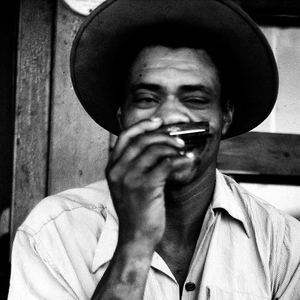
| Trackimage | Playbut | Trackname | Playbut | Trackname |
|---|---|---|---|---|
| 14937888 | Play | Memory Of Sonny Boy | 03:19 Tools | |
| 14937889 | Play | A Woman On Every Street | 02:49 Tools | |
| 14937891 | Play | Levee Camp Reminiscence | 03:27 Tools | |
| 14937890 | Play | drink on little girl | 01:00 Tools | |
| 14937892 | Play | Memory Of Sonny Boy - Single Version | 03:17 Tools | |
| 14937894 | Play | Lonesome Day Blues | 02:51 Tools | |
| 14937893 | Play | Stop Breaking Down | 02:52 Tools | |
| 14937901 | Play | Red Cross Store | 03:45 Tools | |
| 14937897 | Play | Train Time | 04:31 Tools | |
| 14937895 | Play | She Lived her Life Too Fast | 03:24 Tools | |
| 14937900 | Play | Special Delivery Man | 02:51 Tools | |
| 14937902 | Play | Shady Lane Woman | 03:01 Tools | |
| 53294174 | Play | Ash Street Boogie | 02:51 Tools | |
| 14937906 | Play | Mean Mistreatin' Woman | 02:50 Tools | |
| 53294175 | Play | Sawdust Bottom | 02:51 Tools | |
| 14937899 | Play | She Don't Love Me That Way | 00:00 Tools | |
| 14937896 | Play | Forest City Jump | 03:04 Tools | |
| 89344700 | Play | Levee Camp Moan | 03:04 Tools | |
| 53294176 | Play | Lonesome Day Blues (1948) | 03:04 Tools | |
| 89344701 | Play | You Gonna Cut That Out | 03:04 Tools | |
| 53294178 | Play | Memories of Sonny Boy | 03:04 Tools | |
| 53294177 | Play | YOU GOTTA CUT THAT OUT | 03:04 Tools | |
| 14937898 | Play | Forrest City Jump | 02:54 Tools |

-
- 11,778
- plays
-
- 5,037
- listners
-
- 11778
- top track count
* Born: July 10, 1926, Hughes, AR * Died: April 03, 1960 * Active: '40s, '50s * Genres: Blues * Instrument: Harmonica Biography: Blues harpist Forest City Joe was heavily influenced by John Lee "Sonny Boy" Williamson. He not only played like him, but sang like him as well. Unlike his idol, however, who was murdered on June 1, 1948, Joe lived long enough to record for the Chess brothers in the early days of their activities, when Chess was known as Aristocrat. Joe was remembered as a "great harp player" by Muddy Waters, who only missed playing at Joe's one major Chess recording session on December 2, 1948, when Joe was only 21. Joe had more of a country sound than most Chicago artists of the period, so it's surprising that the Chess brothers paired him up with J.C. Coles, a jazz guitarist of no seeming special account, who added little to a session but a few barely audible chords. Joe Bennie Pugh was born in Hughes, AR, on July 10, 1926, to Moses Pugh and Mary Walker. He was raised in the area around Hughes and West Memphis, AR, and even as a boy played the local juke joints in the area. He hoboed his way through the state working road houses and juke joints during the 1940s, and late in the decade hooked up with Big Joe Williams, playing with him around St. Louis, MO. Beginning in 1947, he also began working the Chicago area, and a year later had his one and only session for the Chess brothers' Aristocrat label. He also appeared with Howlin' Wolf and Sonny Boy "Rice Miller" Williamson (aka Sonny Boy II) on radio shows in the West Memphis area. When he returned to Chicago in 1949, he began working with the Otis Spann Combo, appearing at the Tick Tock Lounge and other clubs in the city until the mid-'50s. Pugh returned to Arkansas and gave up music, except for occasional weekend shows with Willie Cobbs, playing in pool rooms and on street corners, beginning in 1955. Pugh recorded for Atlantic Records in 1959, and was still performing until his death in 1960, in a truck accident while returning home from a dance. Had Muddy played Forest City Joe's one and only Chess Records session, as was intended, chances are more of Joe's work would've seen the light of day, if only in an effort to scrounge up every note that Muddy ever played. But as it was, only "Memory of Sonny Boy" and "A Woman on Every Street" ever saw the light of day, and at this writing only the former has ever appeared on an American CD. As to his extant music, "Memory of Sonny Boy" was among the first postwar tribute records from one bluesman to another (Scrapper Blackwell had done as much for Leroy Carr in the 1930s), starting a trend that continued for decade. And it's a great record, at least as far as the harp playing and the singing go. Joe's playing mimics Sonny Boy Williamson I's call-and-response harp playing, performing dazzling volume acrobatics, and his singing is also highly expressive. None of the rest is as strong, but "Shady Lane Woman" is a good, bluesy romantic lament, while "A Woman on Every Street" is the other side of the coin, and a better workout on the harp. "Sawdust Bottom" should have seen release, and "Ash Street Boogie" could've seen action if the accompaniment had been better realized. Alas, J.C. Coles was seemingly content to strum along almost inaudibly in the background -- ah, what Muddy might've done.... ~ Bruce Eder, All Music Guide Read more on Last.fm. User-contributed text is available under the Creative Commons By-SA License; additional terms may apply.